Form Ct-1040 Nr/py - Connecticut Nonresident And Part-Year Resident Income Tax Return And Instructions - 2012 Page 9
ADVERTISEMENT
• From a nonqualifi ed deferred compensation plan for services
Connecticut-Sourced Income of a Part-Year
performed wholly or partly within Connecticut; or
Resident
• From reportable Connecticut Lottery winnings. Winnings from
Connecticut-sourced income of a part-year resident is the sum of:
the Connecticut Lottery, including Powerball, are reportable if
1. Connecticut adjusted gross income for the part of the year
the winner was issued a federal Form W-2G by the Connecticut
you were a resident;
Lottery Corporation. In general, the Connecticut Lottery
2. Income derived from or connected with Connecticut sources
Corporation is required to issue a federal Form W-2G to a winner
for the part of the year you were a nonresident; and
if the Connecticut Lottery winnings, including Powerball, are
3. Special accruals.
$600 or more and at least 300 times the amount of the wager.
See Informational Publication 2011(28), Connecticut Income
Items Subject to Special Accrual
Tax Treatment of State Lottery Winnings Received by Residents
and Nonresidents of Connecticut.
A part-year resident must recognize and report items of income,
gain, loss, or deduction on the accrual basis regardless of the
In general, Connecticut-sourced income of a nonresident does
method of accounting normally used. In general, an item of income
not include the following income even if it was included in your
is subject to special accrual if the right to receive it is fi xed and
federal adjusted gross income:
the amount to be paid is determinable with reasonable accuracy
• Distributions from pension or retirement plans (such as 401K
at the time residency status is changed.
plans);
Change From Resident to Nonresident
• Interest, dividends, or gains from the sale or exchange of
intangible personal property unless that property is employed
If you moved out of Connecticut during the taxable year, you must
in a business, trade, profession, or occupation carried on in
include, in calculating your Connecticut adjusted gross income
Connecticut;
for the period of your Connecticut residency, all items of income,
gain, loss, or deduction you would be required to include if you
• Compensation received for active service in the U.S. military;
were fi ling a federal income tax return for the same period on
• Dividends from a corporation doing business in Connecticut;
the accrual basis, together with any other accruals not otherwise
• Compensation you received from an interstate rail carrier,
includible or deductible for federal or Connecticut income tax
interstate motor carrier, or an interstate motor private carrier;
purposes (such as deferred gains on installment obligations).
• Gambling winnings (other than reportable Connecticut Lottery
Include items of special accrual with other items of income,
winnings shown on federal Form W-2G). See Informational
gain, loss, and deduction reported for your residency period. See
Publication 2011(27), Connecticut Income Tax Treatment of
Schedule CT-1040AW Instructions, on Page 34.
Gambling Winnings Other Than State Lottery Winnings;
Example 1: Laura, a part-year resident who moved out of
• Interest you earned from a Connecticut bank (unless earned by
Connecticut in June 2012, sold property on the installment basis
a Connecticut business); or
in April 2012. She will receive annual installment payments
• Income you received from business or employment activities
for fi ve years. She must accrue the entire gain on the sale of
in Connecticut that are considered casual, isolated, or
the property to the portion of 2012 when she was a resident
inconsequential.
of Connecticut because her right to receive the gain was fi xed
Activities Considered Casual, Isolated, or
and the amount was determinable before the time she changed
her residency.
Inconsequential
In general, activities that meet one of the following tests are
Example 2: Rick, a resident of Connecticut, retired from his
considered casual, isolated, or inconsequential:
Connecticut employment on September 1, 2012, and moved to
1. $6,000 test - The gross income from the presence of a
Florida. His employer notifi ed him on August 15, 2012, that
nonresident in Connecticut does not exceed $6,000 in the taxable
he would receive a $1,000 bonus on September 15, 2012. He
year. However, this test does not apply to a nonresident who is a
must accrue the $1,000 bonus to the portion of 2012 when he
member of one or more pass-through entities with Connecticut-
was a resident because the right to receive the bonus was fi xed
sourced income. In such a case, the nonresident member’s
and the amount was determinable before the time he changed
activities is not considered casual, isolated, or inconsequential
his residency.
unless the member’s Connecticut-sourced income from the
Example 3: Emma, a Connecticut resident, won the Connecticut
pass-through entity or entities is less than $1,000.
Lottery in 2012. The proceeds from her wager were reported
An employee’s wages for services performed in Connecticut are
on federal Form W-2G. Emma will receive her winnings on the
taxable, regardless of the amount, unless the employee’s services
installment basis for 20 years. During the 2012 taxable year,
meet the Ancillary Activity Test. Also, reportable Connecticut
Emma moved out of Connecticut and is a part-year resident
Lottery winnings are taxable regardless of the amount.
because she changed her permanent legal residence. Ordinarily,
Emma’s Connecticut Lottery winnings would be subject to
2. Ancillary Activity Test - The nonresident’s presence in
special accrual; however, Emma may avoid special accrual
Connecticut is ancillary to his or her primary business or
on those lottery winnings as long as the Connecticut Lottery
employment duties performed at a base of operations outside
Corporation continues to withhold Connecticut income tax
of Connecticut. Ancillary activities are those activities that
from those winnings. Emma will remain subject to Connecticut
are secondary to the individual’s primary out-of-state duties,
income tax for the years during which the lottery winnings are
and include such things as presence in the state for planning,
received.
training, attendance at conferences or symposia, etc.
Page 9
ADVERTISEMENT
0 votes
Related Articles
Related forms
Related Categories
Parent category: Financial
 1
1 2
2 3
3 4
4 5
5 6
6 7
7 8
8 9
9 10
10 11
11 12
12 13
13 14
14 15
15 16
16 17
17 18
18 19
19 20
20 21
21 22
22 23
23 24
24 25
25 26
26 27
27 28
28 29
29 30
30 31
31 32
32 33
33 34
34 35
35 36
36 37
37 38
38 39
39 40
40 41
41 42
42 43
43 44
44 45
45 46
46 47
47 48
48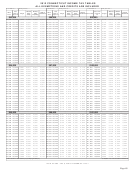 49
49 50
50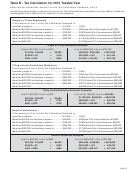 51
51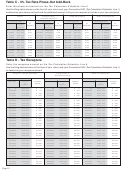 52
52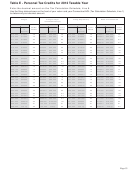 53
53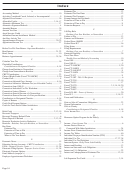 54
54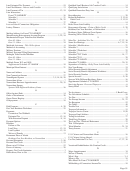 55
55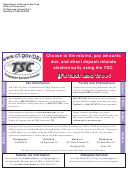 56
56








